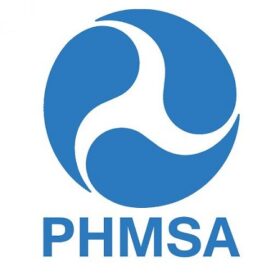INGAA appreciates PHMSA’s interest in improving its incident, infrastructure and performance database. Consistent with this focus, the proposed definition of “incident” should be substantially modified to reflect the central role that risk plays in distinguishing incidents from other events. INGAA urges a number of revisions, and specifically objects to the “lost gas” provision that would make a gas transmission leak a reportable incident once the amount of gas lost exceeds a mere 3,000 Mcf.
INGAA also appreciates PHMSA’s interest in establishing and reasonably maintaining a National Registry of Pipeline and LNG Operators. Unfortunately, the proposed regulations governing registry updates do not accord with basic business practices and far exceed similar requirements that have long been imposed by the Federal Energy Regulatory Commission. The Proposed Rule would revise 49 C.F.R. § 191.25 by eliminating the distinction between discovering a condition and determining that the condition is reportable. No reason was given for eliminating this valuable and sensible distinction, and INGAA urges the distinction be preserved.
Elsewhere, the Proposed Rule would revise 49 C.F.R. § 191.27 without updating the text to reflect significant regulatory changes that have occurred since the regulation was first promulgated in 1991. INGAA urges PHMSA take this opportunity to update the reporting deadline in 49 C.F.R. § 191.27 to reflect current regulations.
Finally, INGAA urges a number of revisions to the proposed annual report and accompanying instructions. INGAA presents these suggested revisions not only in the text of these comments, but also in a marked-up copy of the annual report, which is being filed with these comments as Appendix A. Given the number and nature of the suggested revisions, INGAA urges PHMSA to provide a supplemental public notice, giving the public 30 days to comment on its proposed annual report as further revised to reflect INGAA’s comments and the comments of others. The supplemental notice and opportunity to comment would mirror the procedures PHMSA is employing with regard to accident reports, and foster an integrated data collection approach.
In closing, INGAA notes that integrated management of these data collection initiatives would be substantially enhanced by coordinated implementation, including the use of an appropriate test period, which would allow all of PHMSA’s data collection initiatives to be instituted at the start of the same calendar year.







